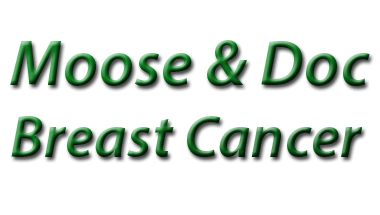Your Breast Cancer Oncologist and the Multidisciplinary Team
An oncologist is a doctor that specializes in the treatment of all types of cancers. From a potential diagnosis of breast cancer, a patient is referred to an oncologist who will manage all aspects of care.
Firstly, it falls on the oncologist to break the news of the diagnosis of breast cancer and the stage and type.
In the context of the breast cancer treatment team, the oncologist is a little like the quarterback.
Following initial tests, if necessary, the oncologist will typically request additional imaging and biopsies. In addition, the oncologist will examine the pathology report in order to stage breast cancer.
Furthermore, it is the oncologist that ultimately decides the appropriate course of treatment. However, the oncologist liaises with the surgeon, the radiologist, the radiation oncologist and the pathologist.
Chemotherapy and the Oncologist
A medical oncologist plays an important role in the treatment of breast cancer.
Furthermore, the oncologist chooses, prescribes and administers chemotherapy. Chemotherapy is usually taken orally in the form of a prescription drug.
The oncologist has a good clinical and scientific knowledge of all the different types of breast cancer.
Furthermore, the oncologist has a strong understanding of the risk of recurrence, and the overall prognosis for any given presentation of breast cancer.
Breast Cancer: The Diagnosis
The pathologist confirms the diagnosis of breast cancer following the microscopic examination of the affected tumor cells.
So, the pathologist provides biological information on the exact nature of breast cancer. The oncologist then uses this critical information to decide upon a treatment plan.
Also, the surgeon, the radiologist and the radiation oncologist are also involved in decision making regarding the best treatment options.
Assessment of Effectiveness of Treatment and Follow-up
The breast cancer oncologist may consult a hematologist-oncologist
Hematologist-oncologists are physicians that specialize in blood-related cancers.
These medical specialists may be consulted by the breast cancer oncologist for differential diagnosis regarding possible leukemia or lymphoma.
Furthermore, the hematologist-oncologist may help assess the chemical and molecular features of the blood in breast cancer patients.
The blood examinations are often necessary to assess the features of the presenting breast cancer. Furthermore, blood studies are also necessary to assess the response to various cancer treatments.
The oncologist and the Patient
The breast cancer oncologist ideally should be, and usually is sensitive, honest and a good communicator.
Firstly, the oncologist will be involved in making the diagnosis. Secondly, the oncologist will explain and explore treatment options for the particular type of breast cancer with the patient.
Oncologists are often asked by patients about their prognosis. However, a lot of cancer specialists are reluctant to discuss time frames and overall prognosis because each case is so very individual.
Sometimes breast cancer oncologists may have an estimate on the general outlook for any given breast cancer. This prognosis, however, is based on statistics from large groups of patients combined with the doctor’s own clinical experience.
Please remember that all prognostics are only a rough guide.
Finally, the oncologist will discuss how a particular breast cancer tends to behave and the typical response to treatments.
Obviously, it is important that all this information is given in terms that the patient understands.
More about the Patient/Oncologist Relationship
The Oncologist, Treatment and Clinical Trials
In more advanced-stage breast cancers, (stages III and IV) treatment will most likely involve the use of chemotherapy. Chemotherapy is also given for early breast cancers ‘pre-surgery‘ and is not just prescribed for advanced breast cancers.
It is mainly large drug companies that create clinical trials. Trials test new treatments and chemotherapy.
However, dedicated cancer clinics and university-affiliated hospitals are often also research-oriented.
This is generally a good thing because oncologists who follow and participate in clinical trials will be up-to-date on the latest research information and science.
This is important because reports on breast cancer clinical trials on the internet are often up to five years behind current research. Your oncologist should know all the latest information.
Participation in clinical trials is generally positive for breast cancer patients
Occasionally there are ethical concerns surrounding participation in clinical trials, but these concerns are generally unfounded.
Participation in clinical trials is usually a good thing for the patient. Drugs or a combination of drugs on clinical trials are never inferior to standard treatments.
Furthermore, drugs used in clinical trials for the treatment of breast cancer will almost always perform at the same rate, or hopefully even better, than the standard regimes.
Breast Cancer Oncologists and Clinical Trials.
So, is there a bit of a sub-text behind the role of the oncologist when it comes to the staging of breast cancer?
Yes sometimes, it is their job to stage the breast cancer, consider the best treatment plan and to organize and implement that plan.
However, the oncologist, when given a new breast cancer referral, may assign the patient into different categories and sub-categories for research purposes.
Diagnostic tests are, of course, vital to correctly identify breast cancers and properly engage the most prudent treatments.
However, the oncologist may also be interested in finding patients who fit specific categories and stages required for certain clinical trials.
In general participation in clinical trials is a good thing. If an oncologist is particularly thorough and diligent in initiating and gathering diagnostic summaries for research purposes this can help others too.
The oncologist and palliative care
Between 80% -90% of breast cancers are curable, unfortunately, some women do not ultimately survive breast cancer.
It is really the role of the oncologist, though not an easy one, to inform the patient when it appears as though the breast cancer has progressed beyond their ability to cure it and to change the focus of the breast cancer management.
Palliative care is the total support and care of patients with an advanced progressive illness. The oncologist is also in charge of arranging and managing palliative care for incurable breast cancers.
Palliative care is becoming more specialized, and in the future, we are likely to see this role taken over by specialized nurses and doctors who are able to make home visits.
A few Questions and Answers
What types of cancers do oncologists diagnose and treat?
Basically an oncologist will treat all types of cancers, although many will specialise in one particular area. These include:-
- Brain tumors
- Tumors of the head and neck
- Sarcomas
- Melanoma (skin cancer)
- Kidney Cancer
- Ovarian and Cervical Cancer
- Hepatoma
- Pancreatic and biliary Cancers
- Neuroendocrine Cancer
In brief, can you re-cap the role of the oncologist?
but the change can be beautiful.
What investigations will I have to diagnose cancer
Well, investigations needed for the diagnosis will very much depend on the location of the cancer.
Below are some common investigations:-
- Biopsy or resection, (taking a tissue sample to examine cells or removing the tumor)
- Endoscopy
- X-Ray
- CT Scan
- MRI Scan
- Ultrasound
- Mammogram
- Scintigraphy
- Single Photon Emission Computed Tomography (SPECT)
- PET scans
- Blood tests (including nuclear markers)
Further Reading
- Index of ALL our Posts on the Treatment of Breast Cancer
- ALL our Articles on Types of Breast Cancer
- Index of ALL our Articles on Breast Cancer Incidence and Survival Rates
Return to Homepage
References
- Neuman HB, Steffens NM, Jacobson N, Tevaarwerk A, Anderson B, Wilke LG, Greenberg CC. (2016) Oncologists’ Perspectives of their Roles and Responsibilities during Multi-disciplinary Breast Cancer Follow-up Ann Surg Oncol. 2016 Mar; 23(3): 708–714. https://www.ncbi.nlm.nih.gov/pmc/articles/PMC4749446/
- Gramling R, Fiscella K, Xing G, Hoerger M, Duberstein P, Plumb S, Mohile S, Fenton JJ. () Determinants of Patient-Oncologist Prognostic Discordance in Advanced Cancer. JAMA Oncol. 2016 Nov 1;2(11):1421-1426. https://www.ncbi.nlm.nih.gov/pubmed/27415765
More references for Breast Cancer Oncologist are on this page.


